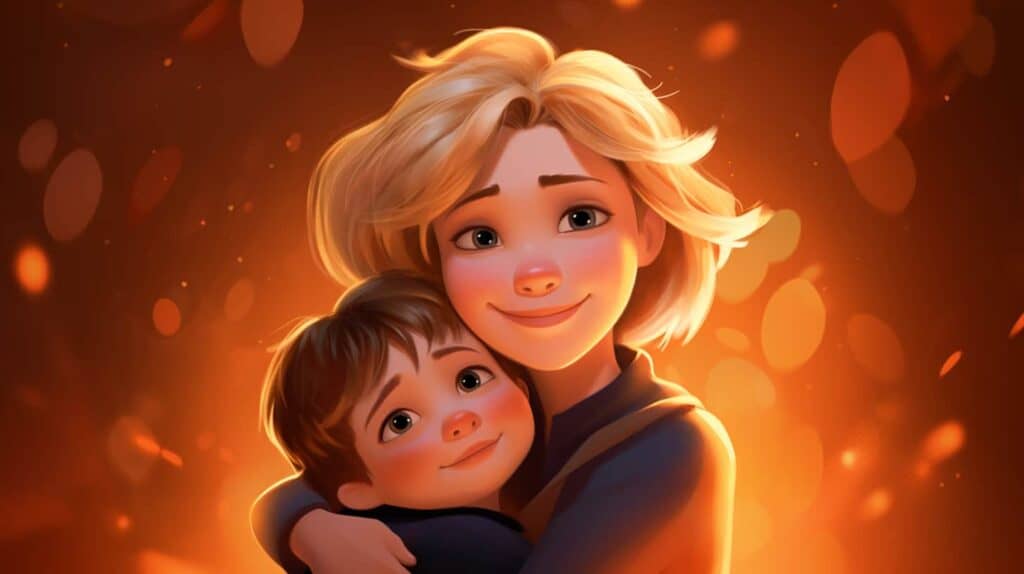When we talk about family, we instantly think of moments of sharing and love. However, family relationships are much more complex. They are subject to dynamics specific to each structure and influenced by the culture in which it evolves. To understand the functioning of family dynamics, it is necessary to study the different aspects.
Definition and Concept
Family dynamics refer to all the interactions between the members of a family, these manifesting themselves in behaviours, norms and values. The concept can be applied to any type of family structure, be it a couple, a single parent family or a group of people living under the same roof. Family dynamics take into account all the links created between members and can be considered as the result of past or present actions.
These interactions are the result of a variety of influences such as history, genetic, there sociology, THE psyche and many others. It is therefore necessary to take these factors into account in order to fully understand the structure and relationships that unite each family.
Family Dynamics: Great Diversity
Each of the family dynamics is unique and therefore cannot be compared to another. Thus, there is a wide variety of factors that can influence the functioning and the links of the group. Among these may be mentioned the socio-cultural environment, THE gender and members' socioeconomic status, genetic makeup, and chosen lifestyle.
Likewise, the religion and the policy can play an important role in forming family foundations and help shape their respective cultures. Indeed, each member has an opinion formed by his personal experience and his vision of the world. These opinions can directly impact the functioning of family dynamics.
Exploring Complex Interactions Within Families: Deciphering Relationships and Mutual Influences »
In the ever-changing world of family dynamics, understanding complex interactions is of paramount importance for cultivating harmonious relationships and fostering an environment conducive to the development of each individual. Let's dive deep into the intricacies of these dynamics, examining how family members interact, influence each other, and grow together.
Analysis of Intrafamily Relations
Within each family, a complex web of relationships is woven, weaving bonds that unite individuals in a web of interactions. From warm affection to occasional disagreements, every interaction contributes to the overall dynamic. Parents play a central role as guides and templates, while children bring their own energy and perspective. This relationship in constant evolution creates an environment in which attitudes, emotions, and behaviors reverberate from member to member.

Mutual Influences and Family Evolution
Reciprocal influences fuel family dynamics. Parents shape the values and beliefs passed on to children, while being influenced by their unique growth and experiences. Life transitions, such asentry to school, adolescence or professional changes, add additional layers of complexity to these dynamics by constant evolution. external events and social interactions also contribute to how the family evolves over time.
Balance between Individuality and Family Cohesion
One of the keys to navigating complex family dynamics is finding the balance between individual needs and family cohesion. Each member brings their own personality, aspirations and preferences, which can sometimes lead to challenges. Furthermore, the way in which we adopt respectful compromises and by promoting a open communication, these can play a role in maintaining harmony while promoting individual expression.
This is why delving into the intricacies of complex family dynamics allows us to grasp the extent of the interactions and mutual influences that shape each family unit. By looking closely at these interactions, we can take steps to promote understanding, kindness and positive development within the family.
Family Dynamics: An Environment Rich in Learning
Family dynamics constitute a privileged space for the individuals who live there. They not only offer a social network safe and protective, they also serve as a testing ground for many Essential Skills. Indeed, very early on, children acquire emotional and social reference points that will be useful to them throughout their lives. They thus learn to adapt to a constantly changing world and to interact with other members of the family and social group.
Furthermore, the family setting allows everyone to highlight their qualities and motivations and to express themselves through the sharing of knowledge. Indeed, the ties woven within a family can allow each other to find moral and emotional support.
Strategies for Maintaining Healthy Bonds
- First of all, it is essential that each individual feels respected and listened to. This implies that everyone is free to express themselves without fear of reprisal or judgement. Open and frank communication is necessary to avoid tensions and facilitate constructive dialogue.
- I'empathy is very important in the family. Each member may go through ups and downs. In order to remain united in the face of these difficulties, it is essential to know how to recognize and accept the emotions of others.
- Finally, it is essential to take the time to cultivate common activities. Whether it's games, conversations or simply moments together, sharing and complicity are valuable tools for strengthening family ties.
THE family dynamics are extremely complex and highly variable. To understand this complexity, it is necessary to study their multiple aspects and influences. Although each family may have distinct characteristics, strategies can be put in place to maintain healthy links and a positive atmosphere.
- Respect everyone's opinions
- Empathy and understanding
- Share common activities
